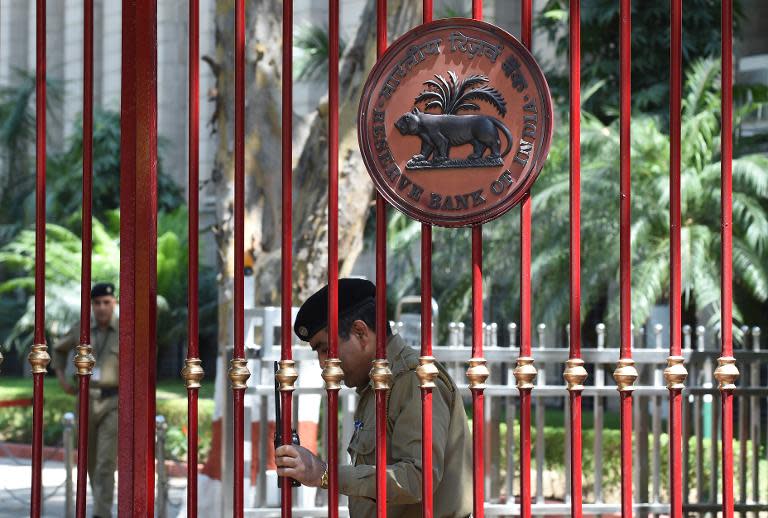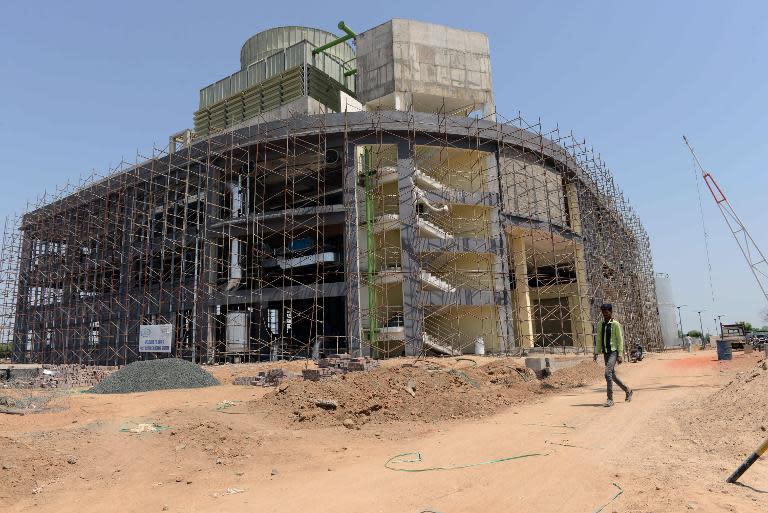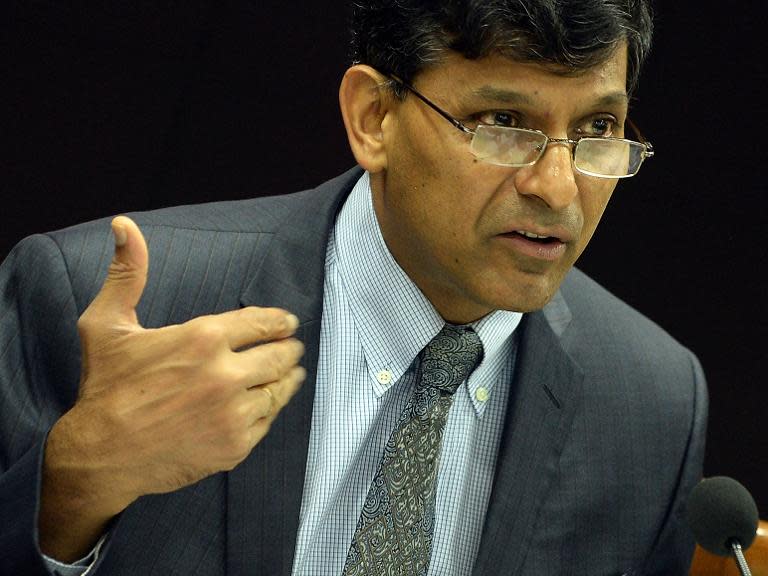India's central bank cuts interest rates for third time this year
India's central bank on Tuesday cut interest rates for the third time this year and played down recent strong growth in Asia's third-largest economy, saying investment and demand remained weak. The Reserve Bank of India (RBI) lowered the benchmark repo rate -- the level at which it lends to commercial banks -- by 25 basis points to 7.25 percent with immediate effect. It was in line with analysts' expectations and means the RBI has now lopped 75 basis points from borrowing rates in 2015. RBI governor Raghuram Rajan said the cut was necessary to boost investment and consumer demand in the economy, which he said was still not firing on all cylinders despite growth picking up pace. "We still believe the economy is below potential. Investment is still tepid and demand is weak," he told reporters after the bank's monetary policy meeting in Mumbai. Prime Minister Narendra Modi's right-wing government swept to power last year pledging to reform and revive a flagging economy, and has been keen for the RBI to cut interest rates. It received a major boost on Friday when data showed the economy grew at an annualised 7.5 percent in the fourth quarter of the financial year, overtaking China. The government posted annual growth of 7.3 percent for 2014-15, up from 6.8 percent the previous year, but Rajan suggested firm evidence of an economic recovery was far from clear. "With low domestic capacity utilisation, still mixed indicators of recovery, and subdued investment and credit growth, there is a case for a cut in the policy rate today," he said in a statement. India's stock exchange was unimpressed by the modest cut, closing down 2.37 percent. Rajan insisted a bigger cut was not appropriate, adding it was not the RBI's job to be a "cheerleader" for the economy. "This policy stance is neither conservative nor aggressive. It is just appropriate given the conditions he said, denying the RBI was at odds with the government. "We have acted as much as what (the) data allowed us to do. We cannot be reckless," Rajan added. The RBI announced its first easing in 20 months in January, snipping 25 basis points off the repo rate. It then made a surprise cut in March before keeping the rate unchanged in April, citing inflation concerns and a failure of most commercial banks to implement reduced loan rates "Banks should pass through the sequence of rate cuts into lending rates," Rajan reiterated on Tuesday. - Monsoon inflation - The governor has made controlling inflation a priority, setting a target of bringing it consistently below six percent by January next year and to four percent for the 2016/17 financial year. In April consumer inflation fell to a four-month low of 4.87 percent, well within the RBI's target range. With the monsoon due to start imminently, and forecast to be weaker than usual, the RBI took the unusual step of urging the government to ensure there were adequate food supplies to keep prices in check. "Strong food policy and management will be important to help keep inflation and inflationary expectations contained over the near term," the RBI said in its statement. Monsoon rains are vital for Indian crops and a particularly dry season can reduce farm output, raising food prices which can be crippling for the tens of millions of India's poor. "How the monsoon emerges in coming months is the biggest uncertainty right now," Rajan said. Ashutosh Datar, an economist at IIFL Institutional Equities, told AFP he was not surprised by the latest cut. "As expected, they are being cautious on inflation due to the monsoon," he said.

 Yahoo Finance
Yahoo Finance 


